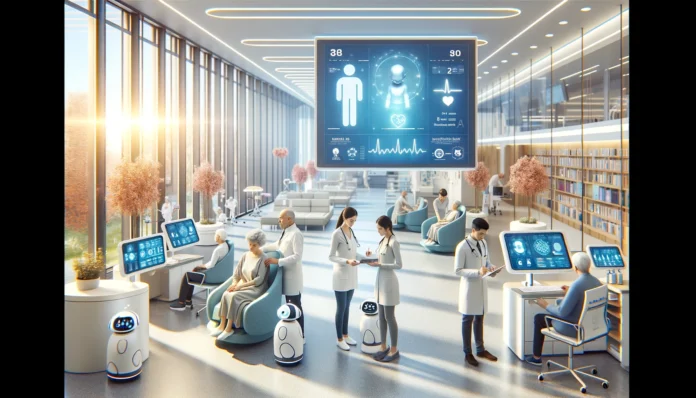In the rapidly evolving landscape of healthcare, one concept stands out for its transformative potential: patient-centric care. At its core, patient-centric care prioritizes the individual’s needs, preferences, and values, empowering them to participate in their healthcare journey actively. With the advent of artificial intelligence (AI), this approach is poised to reach unprecedented heights, ushering in an era of personalized medicine and improved outcomes.
AI, with its ability to analyze vast amounts of data and derive actionable insights, holds immense promise in revolutionizing healthcare delivery. By harnessing AI-driven solutions, healthcare providers can tailor treatments and interventions to suit each patient’s unique characteristics, from genetic predispositions to lifestyle factors. This personalized approach not only enhances the efficacy of medical interventions but also fosters a deeper sense of trust and engagement between patients and providers.
One of the most compelling applications of AI in patient-centric care lies in predictive analytics. By leveraging machine learning algorithms, healthcare professionals can anticipate potential health issues before they manifest clinically, allowing for proactive interventions and preventive measures. For instance, AI-enabled predictive models can identify individuals at high risk of developing chronic conditions such as diabetes or cardiovascular disease, enabling early intervention strategies such as lifestyle modifications or targeted screening programs.
Furthermore, AI-powered diagnostic tools have the potential to revolutionize the way diseases are detected and managed. Through advanced imaging analysis and pattern recognition algorithms, AI can assist radiologists and pathologists in detecting subtle abnormalities that might otherwise be overlooked. This not only expedites the diagnostic process but also improves accuracy, reducing the likelihood of false positives or missed diagnoses.
In addition to diagnosis and treatment, AI is poised to enhance the efficiency and effectiveness of care delivery systems. Through optimization algorithms and predictive analytics, healthcare providers can streamline workflows, allocate resources more effectively, and reduce wait times for patients. This not only improves the overall patient experience but also maximizes the utility of limited healthcare resources, ensuring equitable access to quality care for all individuals.
Moreover, AI-driven virtual assistants and chatbots are transforming the way patients access information and engage with the healthcare system. From scheduling appointments to answering medical queries, these intelligent systems provide round-the-clock support, empowering patients to take charge of their health outside traditional clinical settings. This not only enhances convenience but also fosters a sense of empowerment and autonomy among patients, leading to better health outcomes.
However, despite its immense potential, the widespread adoption of AI in healthcare is not without its challenges. Chief among these are concerns surrounding data privacy and security, as well as the ethical implications of algorithmic decision-making. As such, it is imperative for healthcare organizations to prioritize transparency, accountability, and patient consent in the development and deployment of AI-driven solutions.
Thus, the integration of AI into patient-centric care represents a watershed moment in the evolution of healthcare. By harnessing the power of data and technology, healthcare providers can deliver more personalized, efficient, and effective care to individuals across the globe. However, realizing this vision requires a concerted effort to address the technical, ethical, and regulatory challenges that lie ahead. Ultimately, by embracing AI-enabled healthcare, we can unlock new possibilities for improving health outcomes and enhancing the well-being of patients everywhere.





